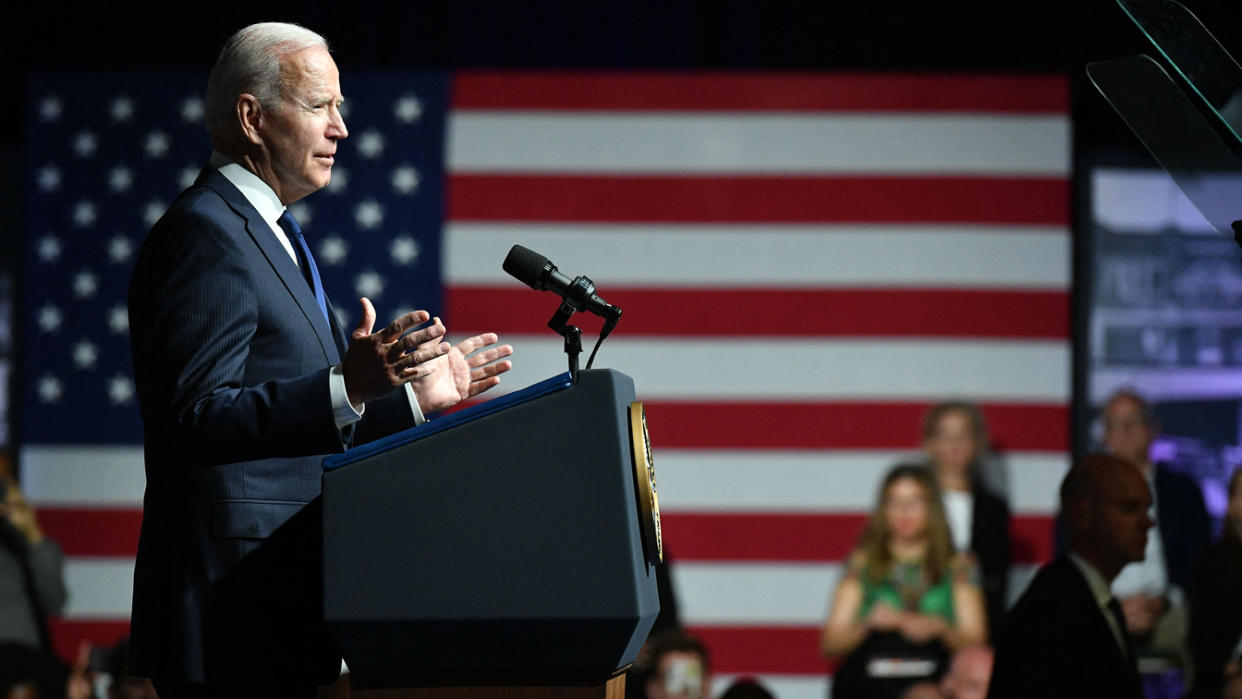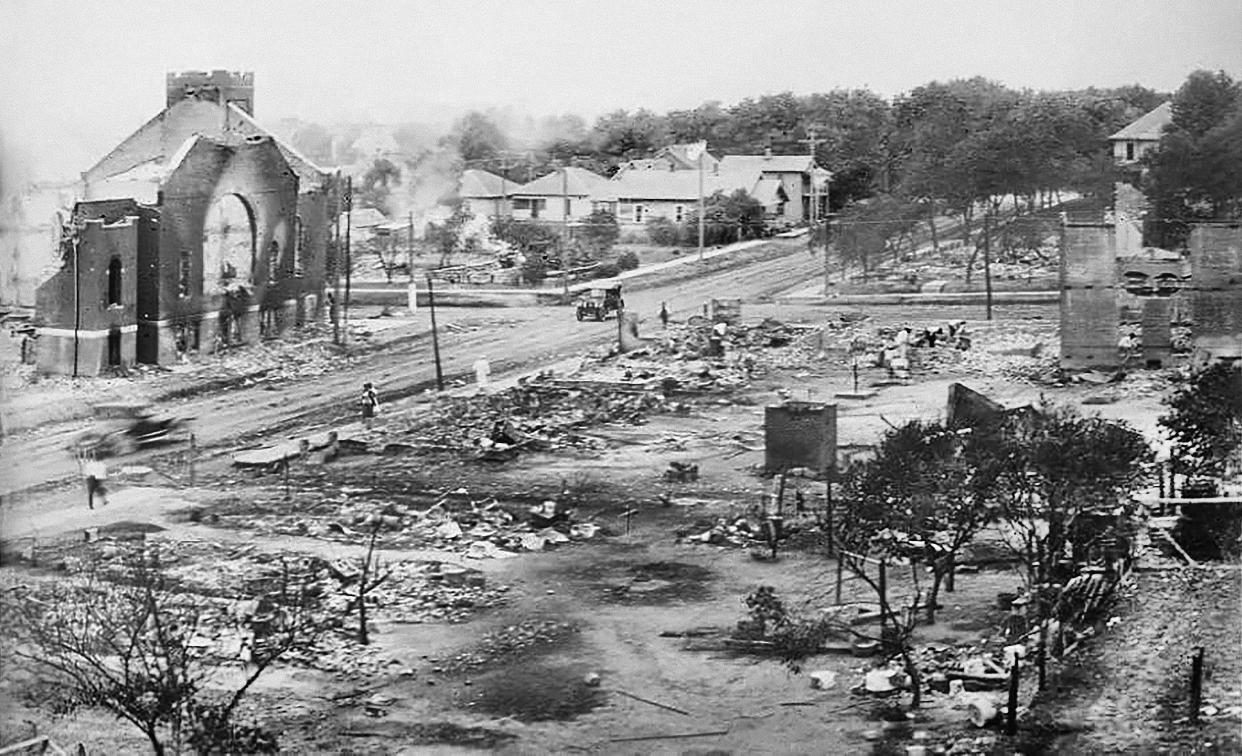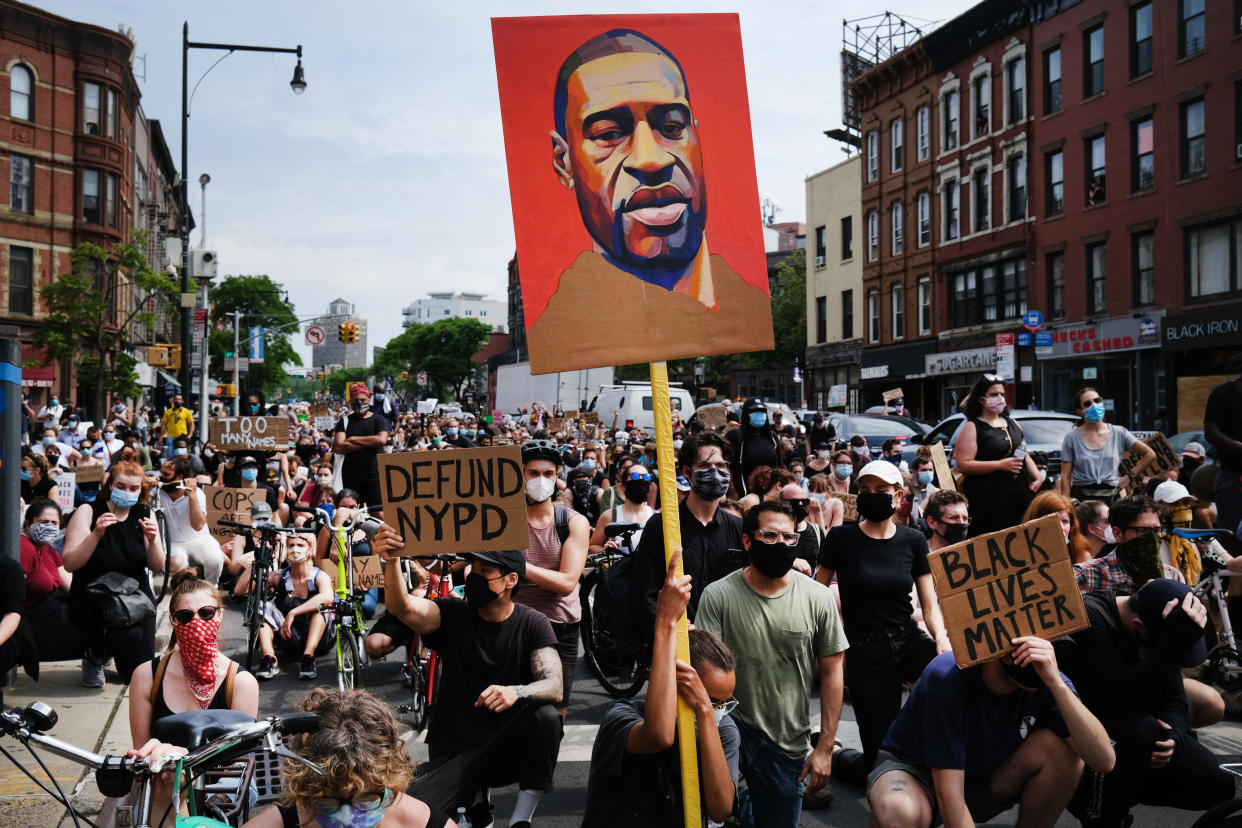Biden commemorates 100th anniversary of the Tulsa Race Massacre: 'Hell was unleashed'
In a Tuesday speech commemorating the 100th anniversary of the Tulsa Race Massacre, which killed hundreds of Black residents, President Biden unveiled a plan to boost economic prosperity for African Americans.
Biden is the first president to travel to Tulsa to commemorate the anniversary of the 1921 destruction of the Greenwood neighborhood, once a center of exceptional Black wealth, by a mob of white Oklahomans.
In an impassioned retelling, Biden walked the audience through the horrific story of the massacre, which occurred in what was known at the time as “Black Wall Street.”

“Hell was unleashed. Literal hell was unleashed," Biden said. "My fellow Americans, this was not a riot; this was a massacre — among one of the worst in our history, but not the only one. As soon as it happened, an effort was underway to erase it from our memory."
Prior to his speech, Biden, joined by Housing and Urban Development Secretary Marcia Fudge and senior adviser Cedric Richmond, met with the three remaining survivors of the massacre.
"You are the three known remaining survivors seen in the mirror dimly,” Biden said. “But no longer. Now your story will be known in full view. The events we speak of today took place 100 years ago, and yet I'm the first president in 100 years ever to come to Tulsa” to mark the killings.
Biden continued: "Just because history is silent, it doesn't mean it did not take place. And while darkness can hide much, it erases nothing. It erases nothing. Some injustices are so heinous, so horrific, so grievous, they can't be buried, no matter how hard people try."
During the past few months, survivors and descendants of the racially motivated killings have called for equity they believe is owed their community in the form of reparation payments, with some pressuring the federal government in a hearing on Capitol Hill.

While Biden has not taken a firm stance on the implementation of reparations relating to slavery, instead supporting a federal study on the matter, he has put forth a set of plans aimed to spur Black economic prosperity. In a series of measures proposed Tuesday, the White House revealed plans to narrow the racial wealth gap through investments in minority-owned small and disadvantaged businesses, and tightening federal oversight on discriminatory housing practices, among other interagency directives.
Biden spoke passionately about protecting Black Americans' right to vote, which he said was under “unprecedented assault” — a veiled swipe at recent action taken by legislators in Texas and Georgia that would make voting more difficult in each state. He also deputized Vice President Kamala Harris to lead national efforts to expand voting access.
"I've been engaged in this work my whole career, and we're going to be ramping up efforts to overcome again," said Biden.
Last summer’s nationwide protests against the treatment of African Americans by police hastened calls for an American reckoning with systemic racism. Yet the White House's attempt to pursue that agenda has faced several partisan challenges on Capitol Hill.
Biden’s promise to revitalize Black American wealth comes only weeks after Congress was unable to meet the administration's deadline to pass a police reform bill before the anniversary of the death of George Floyd, an unarmed Black man killed by then-Minneapolis Police Officer Derek Chauvin on May 25, 2020.
The White House has also backed off from Biden’s campaign pledge to establish a commission to oversee police behavior, instead throwing resources behind a police reform bill passed in March by the House. But that measure has yet to come to a vote in the Senate due to disagreements about ending qualified immunity.

Still, despite major Republican opposition in the Senate, Biden said Tuesday that he believed his administration would be able to deliver some sort of justice.
“June should be a month of action on Capitol Hill,” said the president, who called on Congress to pass legislation on voting rights.
After delivering his speech, Biden met with key members of the Congressional Black Caucus.
____
Read more from Yahoo News:
